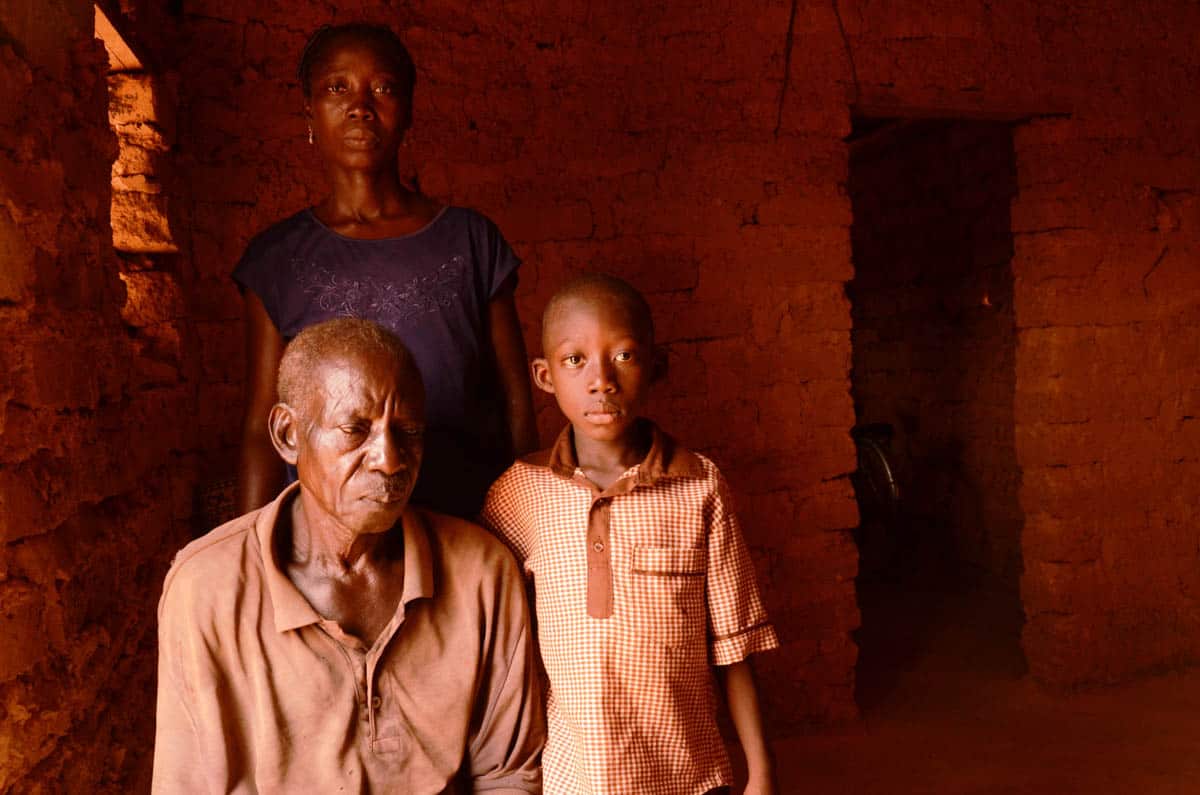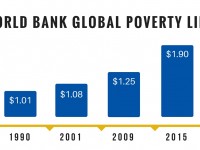We’ve written about the meaning of poor as used in the Bible.
“[T]he case can overwhelmingly be made that references in Scripture to the poor or to poverty should be taken to mean economic poverty, unless the passage can clearly be argued to have a different meaning.”
Today, we addresses some key biblical perspectives on poverty.

Several conclusions about poverty are clear from Scripture:
- God does not desire or intend that anyone live in economic poverty (Deuteronomy 15:4).
- God created laws and social practices for His people to minimize the impact of economic disparity by wealth redistribution (Leviticus 25), by the tithe system to ensure food security for the vulnerable (Deuteronomy 26:12), by practices of generosity (Leviticus 23:22), by no-interest loans (Exodus 22:25), and by impartial legal representation as well as other practices.
- God is angered when these laws and practices are not followed and the vulnerable suffer for it. Conversely, God is pleased, hears our prayers, and brings blessing (Isaiah 58) to those who follow these commands and practice generosity toward the poor and who seek justice on their behalf.
These three conclusions offer a foundation for the Christian response to poverty. God’s intent, commands and feelings inform Christian action.
Furthermore, His omnipotence should allow us to believe that the end of economic poverty is possible because “with God all things are possible” (Matthew 19:26).
Many people and organizations view poverty in economic terms. In 1990 the World Bank set a widely used definition of “extreme poverty” as a per-capita income of less than $1 per day. The World Bank revised that standard to $1.25 per day in 2009.
In reflection on what the Bible has to say about poverty and the poor, there is an important event recorded in Scripture in which Jesus is at a party in the home of Simon the Leper. The party was thrown in honor of Jesus in the town of Bethany just a few days before Jesus’ death.
During this party Jesus says to Judas Iscariot and perhaps to the others at the party a phrase that strongly influences common theologies of poverty. Jesus says, “The poor you will always have with you” (Matthew 26:11).
The misinterpretation of this statement has justified a fatalistic belief that, by divine decree, the world will always have poor people.
Yet even an amateur study of this statement shows that it is extremely unlikely that Jesus was decreeing economic poverty as an unchangeable human condition.
Jesus was affirming Mary for her act of worship and alerting His disciples to the limited opportunities remaining to worship Him in person (in His physical presence). He was three days from His death.
In contrast, they would have many future opportunities to help the poor.
Correcting this unfortunate misinterpretation may open Christian imagination to the possibility of ending economic poverty.
Do you agree or disagree?







29 Comments |Add a comment
. Jesus says, “The poor you will always have with you” (Matthew 26:11).
The misinterpretation of this statement has justified a fatalistic belief that, by divine decree, the world will always have poor people.
Over two-thousand years later the poor are still with us. What Jesus said is exactly what he meant. There will always have poor people, just as there will always be wealthy people. I can say to an individual in any place and at any time that they are not sentenced to poverty. Their situation can change, but there will always be poor people somewhere. No way around it.
“Do your best to present yourself to God as one approved, a worker who has no need to be ashamed, rightly handling the word of truth.” (II Tim. 2:15)
There is a famine at Compassion for the word of God and it being rightly handled. We are in need of great prayer, for God is not pleased when someone bears false witness about him or his word. We have been plagued by the Willow Creek Leadership Summit’s false teachers and false teachings for sometime now. The mixture of seeker-sensitive and emergent church heresies have greatly influenced us.
I’m afraid we are more concerned about gaining sponsorships, at any cost, rather than first honoring God and trembling before his word.
We often hear Old Testament texts allegorized to actually be about Compassion rather than about Jesus Christ and His redemptive plan, which is what the Bible is actually about. Example: We were just given a message on Joshua Ch. 1 minus verse 8 (one of the greatest verses in all the Bible, interestingly left out in the talk) in which we were told that Compassion was Israel and the River Jordan was our new “vision” that we have begun to walk through. The scary thing about the allegory is that the next step in history is given in the book of Judges.
I believe firmly in Compassion’s mission and support it, however, I don’t support the Bible twisting and neglecting we’ve slipped in to. This is something that needs to be dealt with promptly and with much prayer. For His namesake.
I am always wary of associating with any church or religion that advocates “social justice” and this article is exactly that. It is NOT christian for governments to be charity organizations. You do not “do good” by FORCING people to be charitable.
This is the essence of communism and any liberal institution that calls on christian charity as a means of re-distribution of wealth is USING religion for their own purposes. When they get what they want they will toss religion on the scrap heap of everything else that does not fit into their vision and what they already deem irrelevant. If there is anything in the world that can be seen as a so called anti-christ it is liberal hypocrisy. Be VERY cautious of falling for this scam and ANY church or theologian that preaches this.
Very well said.
I think Jesus was quoting Deuteronomy 15 – where v4 says there should be no poor people among you and v11 says that there will be. Poverty and injustice are wrong, and God is outraged by them, but he knows what we’re like, and sees that sinful people will continue to cause poverty and injustice – perfection is not possible in this world.
But improvement is, and we’re commanded to feed hungry people and share what we have, so we’d better get on with it. The question isn’t ‘can we eradicate poverty completely,’ it’s ‘how many people will be poor, and how poor will they be?’ Let’s get to work on that one.
I disagree with Scott’s article on just about every point of interpretation. Having been a Compassion Volunteer for over 15 years, I can report that it is a glorious moment when a sponsor is linked with a Compassion child. One’s perceptions about poverty are not the key issues. What sets Compassion apart as a ministry for Jesus Christ is not trying to relate scripture to some notion of social justice, but to address the power of linking people called to serve Jesus with the children who suffer in a fallen world. This suffering is a result of the corruption of humanity as being the ones in charge rather than submitting to the awesome presence of God in us! He is more than a superhero inspiring the blessed to do good in the world to avoid guilt. Jesus’ words need no clarification. The poor we will always have with us… Do you have Jesus with you?
I don’t believe that we will ever relieve this world of poverty before Jesus comes back. I also believe that our motive for helping the poor should not be to eradicate the world of poverty but should completely come from a desire to love and serve people as it were loving and serving God.
poor and needy, can never cease in the land, because GOD will always test our obedient in HIS laws and WORD
If you get a cut on your hand or something God won’t never heal it so that he can test if you have faith forever if he can heal it…he will eventually heal it. I think the same rule applies
Whether I am poor or rich obeying God never stops and since I am rich monetarily part of that obeying is helping the body of believers poor and rich alike. I often dream I will help push some extremely rich man out of the way of a car or something so he will put a few 100 million dollars in my bank account but bible verses are better than 100 million dollars even 300 million dollars.
I Peter 5:7 “Cast all your anxiety on Him because He cares for you.”
all this things shall be added among us. if we carefully obey His commandment with humble heart and great faith…
The salvation and other benefits of being His son will come. The only problem is, we’re not letting those things come in us. we hinder the blessing of God. but if you believe and have faith, all this things shall be added among us…
Jesus Christ be Exalted…
There seems to be confusion between ‘always’ and ‘forever’.
My car runs quiet well and it ‘always’ starts right up. I can take actions today and make plans for tomorrow based on the ‘fact’ that my car ‘always’ starts. It does not start some days and not other days. It ‘always’ starts. But this condition will not continue ‘forever’.
When we wake up each day there are ‘always’ poor people. But this condition does not have to go on ‘forever’. And on the day that there are no longer any poor people we will no longer say that there are ‘always’ poor people.
If Jesus says ‘the poor ye shall always have with you’, that probably means there will be some level of poverty until the new heaven/earth.
That being said, all the O.T. passages you list point towards the elimination of systemic poverty, including the elimination of corruption.
In Matthew 26.11 Jesus is saying that the woman made a timely choice with what she did with her perfume. Because Jesus would be gone soon, and prior to that because His body would be buried soon, her actions were brilliantly appopriate- both to the situation and to His worth. Given who He is, and what was about to happen, it was good that she used the perfume in this way. We don’t have Jesus here physically with us to pour our ‘perfume’ over- so how does this apply to us? I think it means that we would do well to remember that Jesus is more valuable than other people. We need to be careful not to idolise people- to put them in the position that Jesus should be in our (or their) lives. So then, in thinking how this might relate to Compassion, it means that God’s will for a person, is more important than their personal goals and aspirations. Encouraging belief in Jesus is more important than encouraging a person to believe they can achieve anything they apply themselves to. Conformity to the image of Christ is more important than education. Spiritual richness is more important than escaping economic poverty. Sometimes I wonder if we get the emphasis a bit skewed? or if we at least need to be a bit more careful in how we articulate things. Of course it is important to care for people’s material needs- if I didn’t believe that I wouldn’t be sponsoring children, but that is not the highest nor most important goal. The highest goal is for people to become disciples of Jesus- disciples who will persevere to the end. And I think that this passage needs to at least prompt us then to ask the question- am I like the disiples in verse 8 who miss the point that it’s about Jesus first? And if it’s about Jesus first, then what was He on about? What was His mission? Was it erdicating economic poverty? Was it improving educational standards? Was it creating employment opportunities?Jesus’ purpose on earth was to proclaim and provide forgiveness and reconciliation of a person to their Maker. So if you are a Christian- have that as your first priority, and please Compassion, continue to have that as your first priority also. And please be committed to it with increasing passion and clarity.
Actually, Amy, Jesus told his disciples to proclaim ‘the Kingdom of heaven’. The gospel is not merely salvation through Christ’s death on the cross but the refoundation of the kingdom of heaven on earth. We are told to pray that God’s will would be done on earth as it is in heaven – poverty is not part of the culture of heaven. Yes, the only way to salvation is through Christ but should we really say ‘god forbid I make someone’s life better before they come to know who Jesus is’?
I’m concerned that a Senior Ministry Advisor would take the words of Christ and tell us what He “really” meant. I’m completely on board with helping all we can to help the poor and that it is an affront to God to ignore the poor. I do believe ignoring the poor is a sign of a possible lack of saving faith. It is clearly God’s command for us to action on their behalf. But I don’t think using God’s omnipotence as a reason for reinterpreting Christ’s words is a valid tool to use. For that matter we should believe all illnesses, all cancer, all premature deaths etc. should be eradicated here before perfection in heaven for surely God is omnipotent. Having the poor “always” is a call to us to never cease giving and doing all we can. It is not a deterrent to action for those who truly believe God’s word. Sorry if my amateur study happens to believe what Christ said is true but I can’t go along with changing the Bible to suit my agenda no matter how great and worthy a cause. Still I thank you brother for your dedication to ending poverty. God bless you greatly.
I have a question. One of my sponsored children asked if they could visit me? Is that an option or not? I could see it done, however I might be paying for 3 plane tickets: family member, child, and Compassion staff. I tend to think that is not exactly the purpose of the program. thanks for the response
Mike
Mike, I recommend that you call the 800# for an official reply and a recommendation for how you reply to your sponsored child’s question. My memory from early Compassion training, though, is that sponsors are never to invite or encourage a sponsored child to visit us. One reason for that is that the cultural shock would be tremendous, and such a visit could create a horrendous discontent, when they return. And for the accompanying family member.
And what if the child did not want to go back home? Imagine the challenge to the family member and Compassion staff member as they take a protesting child back home!
Again, I recommend that you call Compassion and ask, “What should I say, now??”
Mrs. Small,
Where I work there is a guy named Mr. Anger 😉 And I have a friend who is Mr. Minor 😉 But I agree with you, but for different reasons. The guy that has the world record in the 3000m steeplechase runs for Qatar. He is a Kenyan. He even changed his name once he started running for Qatar. I don’t want my sponsor child to become American I want him to hide God’s Word in his heart b/c that is more valuable than any amount of money, trips, and letters. I don’t want to rip him away from his home, I want to encourage him in whatever God has planned.
Well at the end of the day if myself and everyone else who has more than enough would tithe and give a nice family gift here and there, I think from what I understand extreme poverty would be eliminated or at least that tithe from the Christians in the USA would be more than enough money to eliminated extreme poverty. I am so used to being rich I don’t even know what poor is. I have seen poor people but don’t really understand. I have had some times when I struggled and wasn’t as rich as I was at times but I do not think I have ever really been poor. I just thought I was sometimes.
Mike – can I recommend you read “Under the Overpass”. This book will help show you what poverty can do to a person because it’s not just about not having money.
This book is the story of 2 young Americans who chose to live on the streets for a couple of months to help them identify with the homeless.
I believe we will always have “poor” as someone will always have less than someone else. It only takes the first move in a monopoly game for one person to have less (be poorer) than another.
Our choice though is how big that gap is. You can be considered poor because you only have 3 houses to their 5 but still have an abundance.
Our choice is whether we have “stupid poverty” or just a gap between “more than enough” and “way more than enough”.
In Matthew 26 Jesus was stating the obvious, and calling us to love those in need.
God doesn’t need our help to wipe away poverty. God could end poverty with but a spoken word if He so chose… yet that doesn’t mean we should turn away from those in need.
End poverty? Not before Jesus returns. Man is unable to do that. The world will always have poor people.
“…unless the passage can clearly be argued to have a different meaning.”
One can argue a different meaning into various passages and convince others that their interpretation is right, but it doesn’t mean it is right.
We live in a fallen world. We need to help the poor, but there will not be a day when there are no more poor in this world. You can look forward to that in the next earth. 😉
I am sure that if Jesus didn’t mean there will always be poor with us, then he would have easily worded it differently. Why would he use ALWAYS if he didn’t? That’s a pretty tough word to misinterpret, unless you interpret it in a way that doesn’t mean ALWAYS. 😉
I believe that when Jesus says, “The poor you will always have with you” (Matt. 26:11, Mark 14:7), he was alluding to the same passage in Deuteronomy 15 you mention near the beginning of your post. Yes, Deut. 15:4 says that there will be no poor among you (Israel), because God was going to provide more than enough for everyone to have what they needed (in Israel). However, He goes on in the rest of that chapter to say that those who had what they needed would be responsible to care for the poor, who were unable to attain what they needed. So, there were going to be poor and those who were poor were going to depend on others. It is beautiful that God created a community and then rules for that community, which would ensure that even the least in the society would have what they needed.
Later in verse 11 He says,
“For there will never cease to be poor in the land. Therefore I command you, ‘You shall open wide your hand to your brother, to the needy and to the poor, in your land.’”
(Deuteronomy 15:11 ESV)
On the one hand he was saying, there will always be poor. But He was making it clear that, if His people followed His laws, then the poor would be taken care of, which would mean there would be no poor.
The problem is that His people didn’t do what they were supposed to do and there continued to be poor in the land. When you see what many of the prophets say later, the people’s lack of care for the poor among them was one of the biggest reasons (besides idolatry) that Israel was sent into captivity. I agree with you that God did not desire anyone to be poor, but it was (and continues to be) the failure of his people to care for the poor which causes poverty to continue. But that is only one factor. The Scriptures speak of many different causes of poverty including laziness, greed, failure to plan, injustice, and many other things.
His disciples and we (if we are His disciples) are faced with the same challenge now. There would be no poor if we helped all of the poor.
However, if Jesus says ‘always’ and you say ‘not always’, that is not just a matter of interpretation. You seem to be directly contradicting Jesus. If you are saying that his statement in that case was only to His immediate disciples, then that makes sense.
I agree that His point in the explanation to His disciples was that He was about to go away and that He was most important. It is also interesting to note that Judas was probably the one making the complaint because he was the disciple responsible for the money bag. We know that very soon after this event, Judas went and betrayed Jesus. So yes, there is something much larger going on in the context of this story. The disciples were trying to use the poor as a justification for why the money should not have been wasted. They (particularly Judas) didn’t really care about the poor as much as they were claiming. But just because Jesus was making another point, does not mean that you can discount or contradict his words when he says ‘always’. Always is always. It’s pretty hard to misinterpret that. I also believe all things are possible. But i think you pulled that one out of its context (Matt. 19), in which he was talking specifically about salvation for the rich man who will have a very hard time entering the kingdom of heaven. If you are going to talk about context and the real point of passages, I think you should apply that consistently to other passage as well.
In the end i would ask you, why are there still poor? There are more poor now than there have ever been, and there are more people than there have ever been.
I believe that we can and should care for the poor and that it is one of the highest priorities. But lets not try to motivate people with a goal that is unattainable. That will only lead people to resent you and feel defeated. I see from the very life of Christ and from teaching throughout all of Scripture that loving the poor is not optional. We should especially proclaim the good news to the poor as Jesus did. We should also seek to feed, heal, restore and lift people out of poverty as Jesus did. One of my biggest disappointments is when people try to separate those things as if one is a priority and the other is not.
And ultimately, whether we end poverty here or not (and i don’t think we will), we cannot lose sight of the fact that Jesus is returning and will complete the work of a new heavens and a new earth. In that day there will be no more suffering and pain and all poverty will definitively be ended. Until that time, let us work tirelessly to lift up the oppressed and the downtrodden and seek to lift up the poor. But in order to do that, we need to humble ourselves. And let us not forget the One who became poor for us so that we would become rich.
Some scholars believe that Jesus is referring to Deut. 15:11 here. Jesus cites the verse at the meal in Bethany in order to make a different point. But it is so easy for us to forget and ignore the rest of the verse in Deuteronomy! A great big “THEREFORE” follows the part that Jesus quotes.
“Since there will never cease to be some in need on the earth, I therefore command you, “Open your hand to the poor and needy neighbor in your land.” “
I used Deut 15:11 in my Compassion Sunday presentation
We will never be able to end poverty in this world —we live in a fallen world of much sin. Our HOPE is in eternity